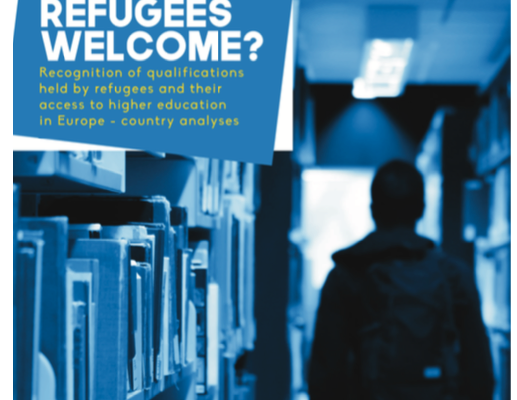
Refugees Welcome
The European Students’ Union with the support of the Open Society Foundation published a new study on recognition of qualifications held by refugees and their access to higher education in Europe. The paper analyses how a selected pool of countries use education as an instrument for inclusion of refugees, asylum seekers and persons in refugee-like situation.
The report includes detailed country analyses of Romania, Belgium, Norway and Germany. The chosen countries represent different parts of Europe as well as countries that face specific challenges in coping with the inclusion of refugees into higher education and that have partially found solutions for these problems that might serve as good practice examples.
According to the information provided by the European Higher Education Area’s (EHEA) the main barriers refugees face when accessing higher education in Europe are lack of information; lack of advice and individual guidance; recognition of credits and qualifications, particularly without documents; inadequate language support provisions and lack of adequate financing.
The report provides an argument that providing access to education for refugees contributes to the country economically and societally. However, in order to guarantee this inherent element of integration, national higher education systems need to fulfill their commitments to social dimension, i.e. the strategies and measures to mirror the diversity of society within higher education.
One of the tools used to provide wider participation in higher education for refugees is recognition of their qualifications. National authorities and higher education institutions should ensure flexible procedures for the recognition of degrees, periods of study and prior learning of refugees, in line with the Lisbon Recognition Convention.
However, despite the existing legal regulations ENIC-NARIC centres responsible for information and recognition still indicate a number of challenges, such as: lack of information about the education systems and qualifications from countries in conflict, questionable authenticity of the documents provided, lack of documentation, incomplete qualifications and the number of applicants.
The report shows that despite various approaches to policy-making and implementation that the countries applied, they certainly have elements in common: bottom-up approaches and initiatives taken up by higher education institutions, staff, students and NGOs, regardless of the scope of governmental support, are central to refugees’ integration.
